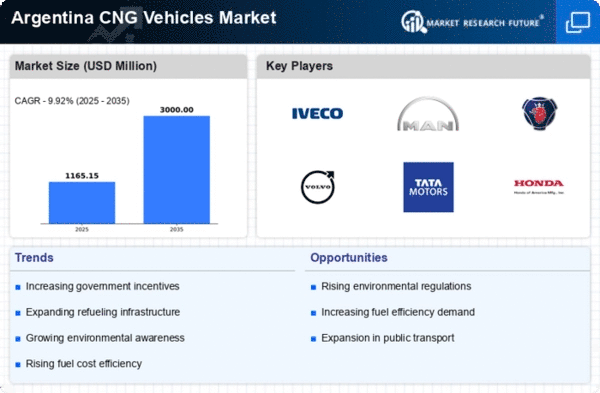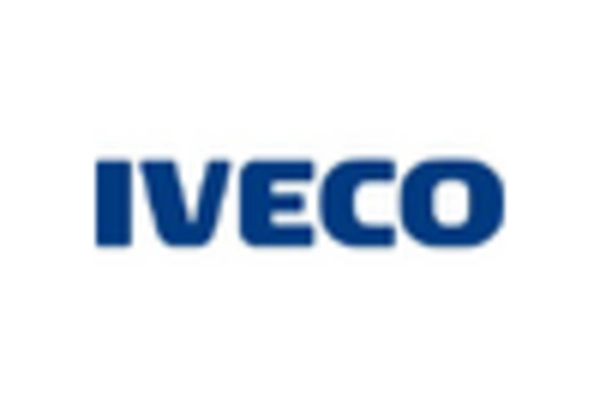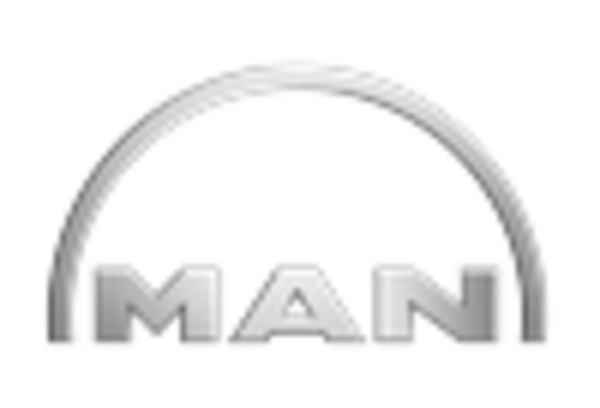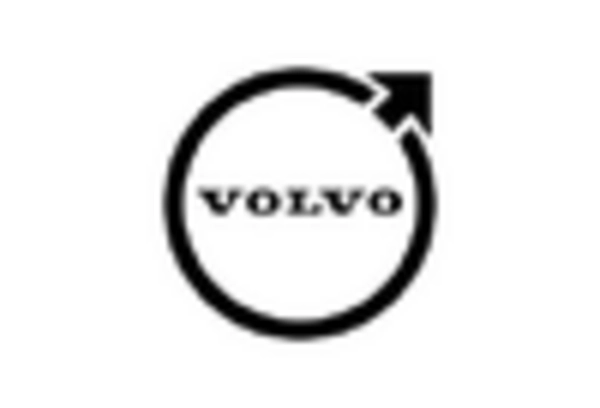Public Transportation Initiatives
Public transportation initiatives in Argentina are significantly impacting the cng vehicles market. The government has been actively promoting the use of CNG in public transport systems, including buses and taxis, to reduce urban pollution and enhance air quality. As of November 2025, approximately 60% of the public bus fleet in major cities like Buenos Aires operates on CNG, reflecting a strong commitment to sustainable transport solutions. This widespread adoption not only demonstrates the viability of CNG vehicles but also encourages private consumers to consider similar options. The success of these initiatives is likely to foster a positive perception of CNG vehicles, thereby driving growth in the cng vehicles market as more individuals and businesses recognize the benefits of transitioning to cleaner fuel alternatives.
Economic Viability of CNG Vehicles
The economic viability of CNG vehicles is a crucial driver for the cng vehicles market in Argentina. With fluctuating fuel prices, CNG offers a more stable and often lower cost alternative. As of November 2025, the average price of CNG in Argentina is approximately $0.80 per kg, significantly lower than gasoline, which hovers around $1.20 per liter. This price differential encourages consumers and businesses to consider CNG vehicles as a cost-effective option. Additionally, the operational costs associated with CNG vehicles are generally lower, leading to potential savings over time. The growing recognition of these economic benefits is likely to stimulate demand within the cng vehicles market, as both individual consumers and fleet operators seek to optimize their fuel expenditures.
Environmental Regulations and Standards
Stringent environmental regulations in Argentina are increasingly influencing the cng vehicles market. The government has implemented various policies aimed at reducing greenhouse gas emissions and improving air quality. As of November 2025, the Argentine government mandates that new vehicles meet specific emissions standards. CNG vehicles typically satisfy these standards more effectively than traditional gasoline or diesel vehicles. This regulatory environment not only promotes the adoption of cleaner technologies but also positions CNG vehicles as a favorable option for consumers concerned about environmental impact. The alignment of CNG vehicles with these regulations may enhance their appeal, thereby driving growth in the cng vehicles market as manufacturers and consumers adapt to the evolving legislative landscape.
Availability of CNG Refueling Infrastructure
The availability of CNG refueling infrastructure is a critical driver for the cng vehicles market in Argentina. As of November 2025, the number of CNG refueling stations has increased significantly, with over 1,500 stations operating nationwide. This expansion facilitates easier access to CNG for consumers and businesses, alleviating concerns about fuel availability. The government has been actively investing in the development of this infrastructure, recognizing its importance in promoting CNG vehicle adoption. Enhanced refueling options not only support existing CNG vehicle owners but also attract potential buyers who may have previously hesitated due to infrastructure limitations. Consequently, the growth of CNG refueling stations is likely to bolster the cng vehicles market, making it a more attractive option for a broader audience.
Technological Advancements in CNG Technology
Technological advancements in CNG technology are playing a pivotal role in shaping the cng vehicles market in Argentina. Innovations in engine design, fuel storage, and distribution systems have improved the efficiency and performance of CNG vehicles. For instance, the introduction of high-pressure fuel tanks has enhanced the range and safety of CNG vehicles, making them more competitive with traditional fuel options. As of November 2025, several Argentine manufacturers are investing in research and development to further enhance CNG technology, which could lead to increased consumer acceptance and market penetration. These advancements not only improve vehicle performance but also contribute to the overall attractiveness of CNG as a viable fuel alternative, potentially expanding the cng vehicles market.
















